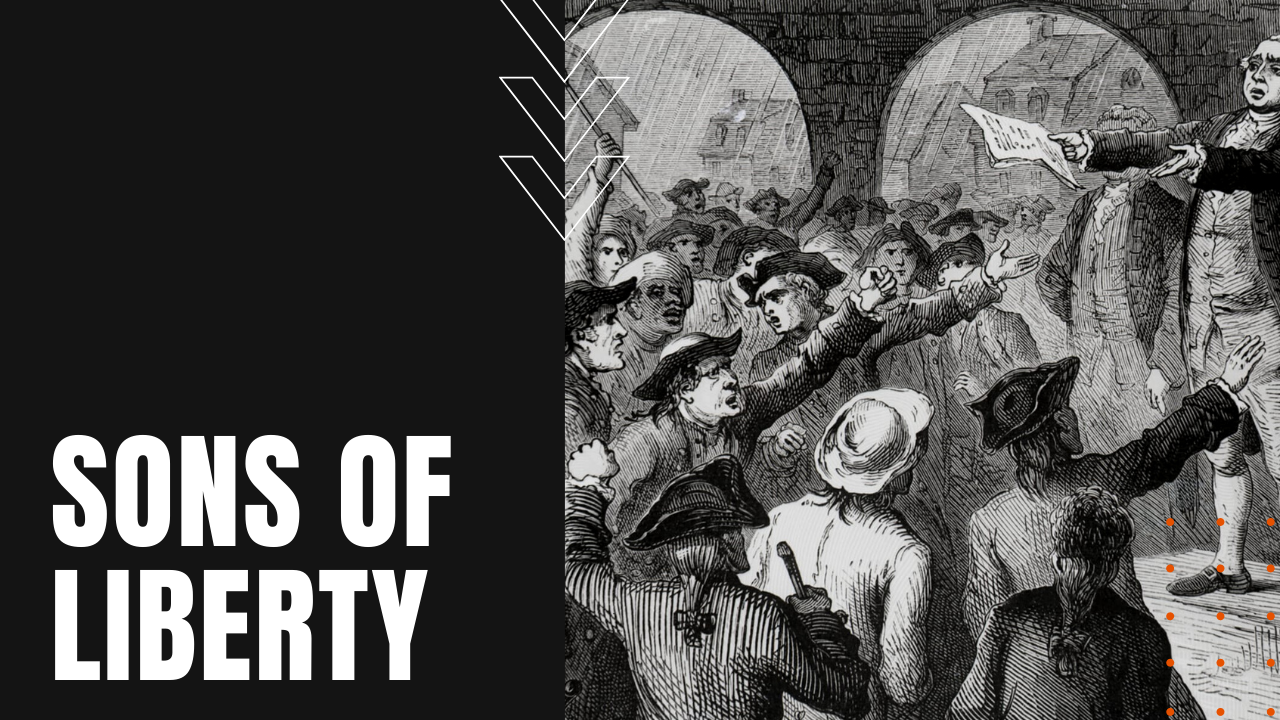Who Were the Sons of Liberty?

Stemming from a secret group of Boston-based patriots known as the Loyal Nine, the group soon spread throughout the colonies as the Sons of Liberty, who became instigators and provocateurs against British rule and taxation, using civil disobedience and threats of violence to intimidate colonists’ loyal to the British Crown.
Who Organized the Sons of Liberty?
Led by such founding father notables as Sam Adams, John Hancock, Paul Revere and Benedict Arnold, the group drew first blood after the Stamp Act was imposed in December of 1765, when the Sons sent a letter to the newly-appointed stamp tax collector, Andrew Oliver, demanding that he resign from his position or face the likelihood of violence.
After Oliver’s house was ransacked by the Sons of Liberty, he appeared as ordered at the Liberty Tree in Boston’s South End, publicly resigning his post before a cheering crowd of some 2,000 colonists, despite a pounding rainstorm.
Intolerable Acts
While George Washington led the Patriots to victory in the Revolutionary War, “the truth is that there might not have been a fight to begin with,” writes historian Les Standiford, “had it not been for the work of Sam Adams.” By way of example, after Parliament passed the Townshend Acts in 1767, imposing further taxes on such goods as china and glass, Adams organized a boycott against British goods in Massachusetts, sending young boys to smash windows and terrorize shopkeepers who failed to comply with the Sons’ demands.
As the Sons’ evolved their philosophies against British rule and taxation without representation in Parliament, they soon rejected the British argument that colonial taxes were necessary to pay down British debts incurred during the French and Indian War, concluding over the Sons’ growing years of activism, that the only real answer was independence from Great Britain.
Fearing a loss of standing in the eyes of other Sons chapters in New York, Philadelphia and elsewhere, after Parliament passed the Tea Act of 1773, Adams encouraged his fellow Bostonian Sons to impede tea shipments by the British East India Company, leading Adams to write after the Boston Tea Party, that the protesters “have acted upon pure and upright principle.”
Sons of Liberty Lead the Way to Lexington
By 1775, British authorities had grown weary of the Sons of Liberty, sending a force of soldiers to Lexington Massachusetts to arrest both Adams and Hancock, but when Patriot militiamen pushed back against the arresting party, the resulting Battles of Lexington and Concord proved to be the opening volley in the Revolutionary War, making the Sons of Liberty, a leading force behind America’s push for independence.
